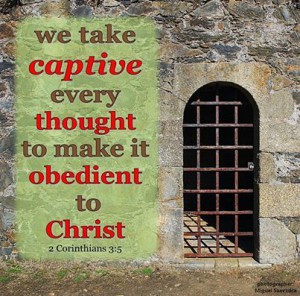 While we may not be able to control everything that happens to us, we are still responsible for how we think, act, feel and respond in any given situation. At times our choices may be limited, but we can still choose to “act” responsibly instead of “react” negatively. Will we respond with strength or weakness, courage or despair, love or hate? How we respond makes a big difference in our quality of life.
While we may not be able to control everything that happens to us, we are still responsible for how we think, act, feel and respond in any given situation. At times our choices may be limited, but we can still choose to “act” responsibly instead of “react” negatively. Will we respond with strength or weakness, courage or despair, love or hate? How we respond makes a big difference in our quality of life.
When we “react” to what life throws our way, we allow circumstances and other people to determine our behavior. We let our emotions control what we do. Many times reacting is an auto-pilot response resulting from previous programmed behavior. In other words, we don’t really think about our responses we just react subconsciously based on what we’ve always done. Old habits die hard.
However, when we “act” we make a conscious choice. We have to actually think and evaluate each situation. Our goal should be to do what God’s Word would have us do, not what we want to do or what we feel like doing. Therefore each circumstance becomes a learning experience, helping us grow in grace and knowledge.
Daily life is full of stress, frustration, and offense. What do we do when faced with a whiney kid, annoying spouse or difficult boss? What do we do when we feel hassled? Do we lash out, blow up in anger, say hurtful things, or try to get even? Scriptures teach us that these are not healthy responses and will not produce positive results.
We can determine some of our responses by planning ahead.
When we are stuck in a traffic jam do we fuss, fume and make ourselves miserable? Those are reactions that do not produce good fruit. When we drift into the habit of reacting, even minor irritants become monumental. We lose perspective. Since we all know traffic jams are inevitable why not decide ahead of time how to act when they happen. Perhaps when a traffic jam occurs we could plan to listen to music, listen to a book on CD, count our blessings, thank God we aren’t in the accident causing the jam, pray for the person who is, or meditate on Jesus’ teachings.
When someone is rude do we react by being rude too? Do we say, “Are you always so stupid or is today a special occasion?” Or “Keep talking and maybe someday you’ll say something intelligent!” God tells us how to deal with difficult people in Luke 32:32-36. If we internalize scripture we can determine ahead of time that we will consciously choose to be gracious even when others are not. We will be courteous and respectful to everyone – friends and enemies.
Here’s a simple formula for learning how to act instead of react:
- Evaluate each situation in the light of God’s Word and personal core values. Using these gauges can help determine a code of conduct to live by and make wise decisions.
- Pray about it. Even quick, simple prayers can be effective.
- Think before speaking.
- Choose how to act in a Christian manner. Even choosing not to respond can be a conscious, thought out decision or action.
Consider this… Automatic thoughts which lead to thoughtless reactions need to be brought under control – brought into captivity to the obedience of Christ. (2 Corinthians 10:5) In other words, with God’s help we can control our thoughts instead of letting them control us. We do this by thinking on what is true, honest, lovely, virtuous, of good report, and praise worthy. (Philippians 4:8) Why? Because when our minds are filled with such thoughts we are less likely to react inappropriately.
Suggestions for practicing this choice…
- Don’t be quick to blame, complain, condemn, or judge others. Don’t impute motives. Give the benefit of the doubt.
- Be patient with others and yourself. It takes time to change reactive habits. Ask yourself if you are overreacting. How does what you are feeling mesh with God’s Word?
- When tempted to react, take a break and calm down. Don’t be afraid to walk away from tense situations, take deep breaths, count to 100 before responding (sometime counting to 10 is not high enough). If someone says, “Why don’t you say something?” Just say, “I’m thinking about what to say.” Or “I don’t have anything to say.” Or “I don’t think I will say anything constructive at this moment.” That way you control the situation and don’t let the situation control you.
- If you are having a disagreement with another Christian (yes, Christians disagree all the time – welcome to the real world of Christianity) try suggesting you both pray about the situation. If he/she doesn’t want to pray about it, you are wasting your time to dialogue about anything.
- Stay mentally, physically and spiritually attuned by getting enough sleep, eating healthy, exercising, and staying close to God. When we take care of ourselves we are more likely to be able to cope with others and situations that come up.



